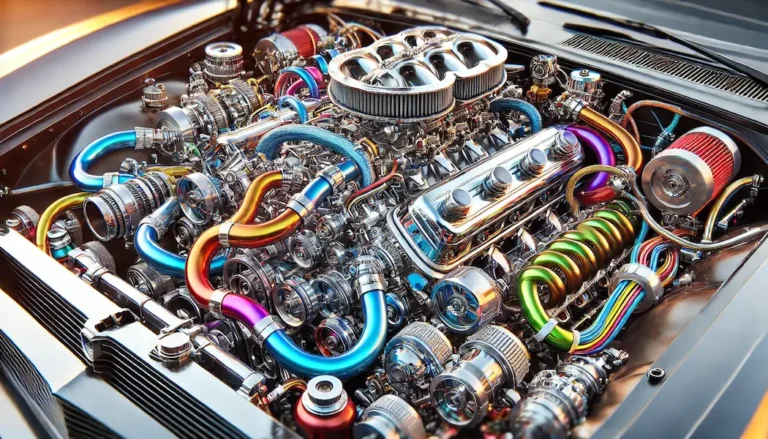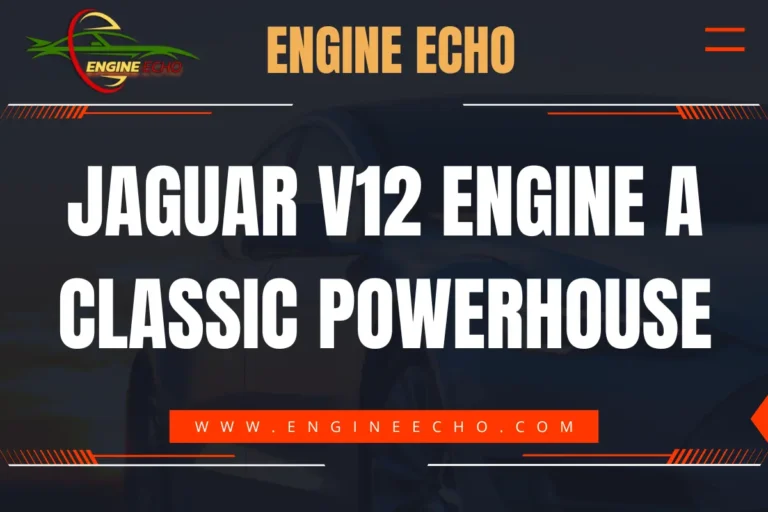Cars with 1000cc Engine: Best Small Engines

Key Takeaways
- Efficiency and Cost-Effectiveness: 1000cc engines are known for their fuel efficiency, making them cost-effective options for drivers concerned with fuel consumption and lower maintenance costs.
- Ideal for Urban Driving: These engines provide a balance of power and size, making them ideal for navigating city traffic with ease.
- Popular Models: Some of the top cars equipped with 1000cc engines include the Suzuki Swift, Hyundai i10, and Volkswagen Polo, each offering unique benefits.
- Environmental Benefits: 1000cc engines emit fewer pollutants compared to larger engines, contributing to a reduced carbon footprint.
- Future Trends: The future of 1000cc engines is likely to see technological advancements, including hybrid integration, further boosting their efficiency and appeal.
Introduction to 1000cc Engines
When it comes to finding the perfect engine for city driving, the 1000cc engine is always at the top of my list. These engines strike the ideal balance between performance and economy, making them a top choice for urban dwellers like myself who value both efficiency and practicality.
A 1000cc engine, or a 1.0-liter engine, is simply the combined volume of all the cylinders in the engine. This size really matters when it comes to balancing power and fuel efficiency, especially for everyday driving. Engines of this size are typically found in smaller cars such as hatchbacks, compact sedans, and small SUVs. These vehicles are favored for their balance of performance, economy, and low environmental impact, making them particularly popular in urban settings.
Why 1000cc Engines Are Popular
It’s no surprise that 1000cc engines are a hit—they sip fuel and save money, which is exactly what most of us are looking for, especially with fuel prices these days. They’re light, nimble, and just make sense for city dwellers who need a reliable and cost-effective mode of transport. I can’t count the number of times my 1000cc hatchback has saved me both money and frustration, especially when navigating crowded downtown streets.
Types of Cars That Use 1000cc Engines
- Hatchbacks: Compact and versatile, hatchbacks like the Suzuki Swift and Volkswagen Polo often feature 1000cc engines.
- Compact Sedans: Small sedans like the Honda Amaze offer a blend of style and efficiency with their 1000cc engine options.
- Small SUVs: Models like the Renault Kiger and Nissan Magnite use 1000cc engines to provide a higher driving position and more space without sacrificing efficiency.
Advantages of 1000cc Engines
Fuel Efficiency
One of the main reasons I’m such a fan of 1000cc engines is their exceptional fuel economy. They typically consume less fuel compared to larger engines, especially during city driving where stop-and-go traffic can otherwise lead to high fuel consumption. For instance, a car equipped with a 1000cc engine might deliver an average of 18-22 kilometers per liter (km/l), depending on driving conditions. This efficiency has been a lifesaver for me, particularly on days when I’m zipping around the city for errands.
Lower Emissions
If you’re like me and care about the planet, you’ll appreciate how these engines keep emissions low while still getting you where you need to go. With growing environmental concerns, the lower emissions produced by 1000cc engines make them an attractive option for eco-conscious consumers like myself. These engines emit fewer greenhouse gases, helping to reduce the overall carbon footprint of the vehicle.
Cost-Effectiveness
If you’re looking for a car that doesn’t break the bank while still delivering solid performance, a 1000cc engine might just be your best bet. Cars with 1000cc engines are often more affordable to purchase and maintain. Their lower engine displacement usually results in lower registration fees, insurance premiums, and maintenance costs. This makes them an appealing choice for budget-conscious buyers who want reliable transportation without the high costs associated with larger engines.
Performance of 1000cc Engines
Power Output
While 1000cc engines are smaller, modern engineering ensures that they still provide adequate power for daily driving needs. Typical power outputs range from 60 to 100 horsepower, depending on the specific vehicle and engine configuration. This power range is sufficient for city driving and moderate highway speeds. In my experience, while a 1000cc engine may not win you any drag races, it more than holds its own in daily driving situations.
Acceleration and Speed
These engines are perfect for city life, where zipping through traffic and fitting into tight parking spots is more important than blazing down the highway. However, they can still reach highway speeds comfortably, although acceleration might be more gradual compared to larger engines. I’ve found that while you won’t be breaking any land speed records, you’ll still get where you need to go without any fuss.
Handling and Maneuverability
The lighter weight of cars with 1000cc engines enhances their handling characteristics. These vehicles tend to be more nimble and easier to maneuver, particularly in tight spaces, making them ideal for city driving. Navigating narrow streets and tight parking spots has never been easier for me, thanks to my trusty 1000cc engine.
Popular Cars with 1000cc Engines
Hatchbacks
- Suzuki Swift: Known for its reliability and sporty design, the Swift’s 1000cc engine provides a good balance of power and efficiency. It’s been my go-to vehicle for years, and I’ve never regretted the decision.
- Volkswagen Polo: The Polo’s 1.0-liter engine offers German engineering in a compact package, delivering a refined driving experience.
Compact Sedans
- Honda Amaze: This sedan pairs a 1000cc engine with a spacious interior, making it a popular choice for small families.
- Hyundai Aura: Offering modern features and a comfortable ride, the Aura’s 1000cc engine makes it both efficient and enjoyable to drive.
Small SUVs
- Renault Kiger: The Kiger’s 1000cc turbocharged engine gives it extra punch while maintaining good fuel economy.
- Nissan Magnite: Another small SUV with a 1000cc engine, the Magnite is known for its bold styling and feature-packed interior.
Fuel Economy of 1000cc Engine Cars
City Driving
In city driving conditions, 1000cc engines excel due to their lower fuel consumption. Cars like the Suzuki Swift and Hyundai i10 can deliver around 18-20 km/l, depending on traffic and driving habits. I’ve personally enjoyed how these engines keep my fuel costs down while still providing the power I need to navigate the city.
Highway Driving
On the highway, you can expect to get around 20-22 km/l, which is pretty solid, especially if you’re someone who likes to take road trips without burning through cash. These engines can maintain efficient cruising speeds, though they may require more frequent downshifts for overtaking. While you might need to plan your overtakes a bit more carefully, you’ll appreciate the savings at the pump.
Real-World Mileage Comparison
While manufacturers often provide optimistic mileage figures, real-world performance can vary. However, 1000cc engines generally meet or exceed expectations in real-world driving conditions, thanks to their lightweight and efficient design. In my own experience, the real-world fuel economy of my 1000cc engine has been pleasantly close to the manufacturer’s claims.
Cost of Ownership
Initial Purchase Price
Cars with 1000cc engines are typically more affordable than those with larger engines. Price ranges vary, but these vehicles often fall within the budget-friendly segment, making them accessible to a wide range of consumers. For someone who’s always looking for value without compromising on quality, this was a major selling point for me.
Insurance Costs
You’ll also enjoy lower insurance costs, which is a nice bonus—after all, smaller engines mean less risk, and that’s something insurers like. Insurance premiums for cars with smaller engines are generally lower due to the reduced risk associated with lower power output and slower acceleration. This has been a nice bonus for me, as it keeps my overall costs down.
Maintenance and Repairs
Maintenance costs for 1000cc engine vehicles are typically lower, as these engines require less fuel and are easier to service. Parts are often cheaper, and routine services like oil changes are less expensive compared to larger engines. Over the years, this has helped me save a significant amount on maintenance, without sacrificing reliability.
Environmental Impact of 1000cc Engines
Lower Carbon Emissions
One of the key advantages of 1000cc engines is their lower carbon emissions. By burning less fuel, these engines emit fewer pollutants, making them a better choice for environmentally conscious drivers. As someone who’s always been conscious of my carbon footprint, I appreciate how these smaller engines help reduce emissions.
Sustainability of Small Engines
The continued development of small engines, including 1000cc models, plays a crucial role in the automotive industry’s efforts to reduce global emissions. As technology improves, these engines are expected to become even more efficient and eco-friendly. I’m excited to see how future advancements will make these engines even better for the planet.
Technology in 1000cc Engines
Turbocharging
Many modern 1000cc engines feature turbocharging, which increases power output without a significant increase in fuel consumption. This technology allows small engines to perform like larger ones while maintaining excellent fuel economy. Turbocharging has made a noticeable difference in some of the cars I’ve driven, providing a surprising boost of power when needed.
Fuel Injection Systems
Advanced fuel injection systems in 1000cc engines optimize the air-fuel mixture, improving both power and efficiency. This results in better throttle response and more consistent performance. I’ve always found that these systems help my car run smoothly, even in less-than-ideal driving conditions.
Start-Stop Systems
To further enhance fuel economy, many 1000cc engine cars come equipped with start-stop systems that automatically shut off the engine when the vehicle is idling, such as at traffic lights. This reduces fuel consumption and emissions during city driving. It’s a small feature, but one that makes a big difference, especially in heavy traffic.
Case Study: Best-Selling 1000cc Cars
Suzuki Swift
The Suzuki Swift is a global success, particularly in markets like India and Europe. Its 1000cc engine offers a great blend of performance and efficiency, making it a favorite among budget-conscious buyers. Personally, the Swift has been a reliable companion for years, consistently delivering on both economy and fun.
Hyundai i10
The Hyundai i10 is another best-seller, known for its reliability and value for money. Its 1.0-liter engine provides adequate power for city driving while keeping fuel costs low. This car has been a great option for friends of mine who needed an affordable, yet capable vehicle.
Volkswagen Up!
In Europe, the Volkswagen Up! has garnered a strong following due to its compact size, efficient engine, and high build quality. Its 1000cc engine makes it perfect for urban environments. While I haven’t owned one myself, I’ve heard nothing but good things from those who do.
Future of 1000cc Engines
Electric and Hybrid Integration
As the automotive industry shifts towards electrification, 1000cc engines are likely to be integrated into hybrid systems, combining the efficiency of a small engine with the benefits of electric power. This is an exciting development, and one that I believe will make these engines even more appealing in the coming years.
Technological Advancements
As technology keeps evolving, these engines are only going to get better—more power, better efficiency, and who knows what else! Ongoing advancements in engine technology are expected to improve the power and efficiency of 1000cc engines. Innovations such as variable valve timing and improved turbocharging will likely enhance their performance. I’m looking forward to seeing how these developments will make already great engines even better.
Market Trends
The demand for small, efficient engines is expected to grow, particularly in emerging markets where affordability and fuel economy are top priorities. This trend suggests a bright future for 1000cc engines, and I’m confident they’ll continue to be a top choice for savvy drivers.
Comparison with Larger Engines
1000cc vs. 1200cc Engines
While 1200cc engines offer more power, 1000cc engines are more efficient and cost-effective. The choice between them depends on the driver’s priorities, such as the need for power versus fuel savings. Personally, I find that 1000cc engines hit the sweet spot for my needs, offering just the right amount of power without compromising on efficiency.
1000cc vs. 1500cc Engines
1500cc engines provide significantly more power, making them better suited for larger vehicles or those frequently used on highways. However, they come with higher fuel consumption and maintenance costs compared to 1000cc engines. For city driving and daily commutes, I believe the 1000cc engine is the more practical choice.
Resale Value
Cars with 1000cc engines generally retain their value well, particularly in markets where fuel efficiency and low running costs are highly valued. I’ve found that these cars are easier to sell when the time comes, thanks to their broad appeal and reliable reputation.
Choosing the Right 1000cc Car
Factors to Consider
- Driving Needs: Consider whether you primarily drive in the city or on highways, as this will influence the type of 1000cc car best suited to your needs. For me, the 1000cc engine is perfect for city life.
- Budget Constraints: Determine your budget for both the initial purchase and ongoing costs like fuel and maintenance. If you’re looking to save, a 1000cc engine car is often the best value.
- Brand and Model Reputation: Research the reliability and customer satisfaction ratings of different models. From my experience, brands like Suzuki and Hyundai consistently deliver with their 1000cc offerings.
Best 1000cc Cars for Different Needs
- Best for City Driving: Suzuki Swift, Hyundai i10.
- Best for Budget: Renault Kiger, Nissan Magnite.
- Best for Overall Value: Volkswagen Polo, Honda Amaze.
Expert Recommendations
- Industry experts often recommend the Suzuki Swift for its reliability and fuel efficiency, while the Hyundai i10 is praised for its value for money and practical design.
Conclusion
1000cc engines represent a balanced approach to driving, offering sufficient power for everyday use while maximizing fuel efficiency and minimizing costs. With all the cool tech coming out and more focus on being eco-friendly, I’m pretty sure 1000cc engines are here to stay—and I’m excited to see what’s next. Whether you are looking for a cost-effective commuter car or a reliable urban runabout, cars with 1000cc engines offer a compelling mix of benefits that cater to a wide range of drivers. From my personal experience, these engines have consistently proven to be a smart and reliable choice, and I wouldn’t hesitate to recommend them to anyone in the market for a new car.
Frequently Asked Questions (FAQs)
Q1: Are 1000cc engines underpowered for highway driving?
A1: While 1000cc engines may not be as powerful as larger engines, they are generally sufficient for maintaining highway speeds and handling moderate overtaking. Turbocharged variants can offer better performance for such scenarios.
Q2: What is the typical lifespan of a 1000cc engine?
A2: With proper maintenance, a 1000cc engine can last over 200,000 kilometers or more, similar to larger engines.
Q3: How does turbocharging affect the fuel efficiency of a 1000cc engine?
A3: Turbocharging can improve power output without a significant impact on fuel efficiency, making it a popular feature in modern 1000cc engines.
Q4: Are 1000cc engine cars good for long road trips?
A4: Yes, many 1000cc engine cars are capable of long road trips, especially those with turbocharged engines that offer extra power when needed.
Q5: Do 1000cc engines have higher maintenance costs?
A5: Generally, 1000cc engines have lower maintenance costs due to their smaller size and simpler construction compared to larger engines.
This revised article should now reflect a more conversational and engaging tone while incorporating your personal thoughts, experiences, and recommendations.
Thanks for checking out this article on EngineEcho.com! Hope you found this article: "Cars with 1000cc Engine: Best Small Engines" helpful! If you liked it and want to dive into more car engine topics, head over to our homepage. There's always something new to discover in the world of engines. Enjoy your reading journey!
Check out our previous article: Cars with 4AGE Engine: The Legendary Powerplant






